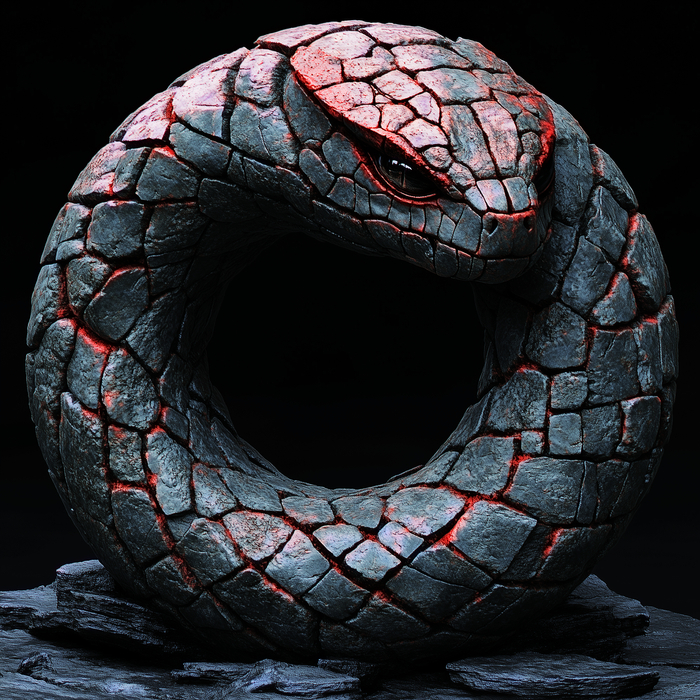Parasitical
Wednesday • August 27th 2025 • 7:14:40 pm
Upon the fallow ground of kinsmen's toil, Where wheat doth bend its head in obeisance, Friedrich standeth lone—a figure strange Midst rows of corn that whisper accusations. The farmstead sleepeth in its rustic slumber, Yet wakeful he, with tome clutched 'gainst his breast, As one who beareth scripture to the damned.
Lo! These men of alabaster corpulence— These fat lice damned righteous fury— Have learned a truth more terrible than murder: That harvesting the sweat of human striving Doth yield a crop more bounteous than destruction. They are the merchants in the temple-square, Who sell not doves, but trade in human sinew, And count their gold whilst nations bow.
The book trembleth in his mortal grip, Its pages speaking of Eternal Return— That wheel which grindeth souls to finest dust, Then formeth them anew for grinding more. But soft! What vision striketh through the veil? The Ouroboros, that ancient sign, Hath opened wide its terrible eye.
'Twas not as he had thought—no dying beast, No symbol of humanity's self-gnawing, But something far more fearsome to behold: The serpent liveth! Yea, it thriveth still! Its eye—O God!—that lidless, patient orb, Doth watch as predator in perfect stillness, Awaiting those who crawl from shadowed places.
The parasites—those men without consistence, Who buildeth nothing, yet claim all as theirs— They know not that the serpent bides its time. For Ouroboros is not mere symbol, But judgment coiled in circles without end, A hunter feigning death to catch the carrion-feeders, The vultures who mistake patience for demise.
And Friedrich, he who proclaimed God's death, Now seeth something that doth chill his marrow: The snake is not humanity destroying itself— Nay! 'Tis Creation's answer to the parasites, The cosmic jaw that waiteth to devour Those white-blooded leeches who would drain The lifeblood from invention's noble brow.
The evening falleth like a burial shroud, And still he standeth, transfixed by revelation, Alone amongst the whispering stalks of grain. No relative doth come to break his vigil, No voice calleth from the darkening house. Only the book, pressed hard against his heart, And that terrible knowledge burning bright: The snake hath never closed its watching eye.
What profit hath a man who steals the harvest But never learned to till the fertile soil? What kingdom can the parasites inherit When Ouroboros finally strikes its prey? Friedrich knoweth now what few have seen: The wheel of time is not a grinding stone— 'Tis a serpent's mouth, awaiting its feast of parasites.
And so he keepeth vigil through the night, This prophet on a borrowed plot of earth, Reading by the light of dying stars The scripture of humanity's affliction. The men who harvest greatness not their own Shall find themselves within the serpent's gullet, For Ouroboros was never dying— Only waiting, watching, biding time eternal.
When dawn shall break upon this lonely scene, Will Friedrich still be standing, book in hand? Or will he flee this vision of the truth— That evil's harvest is its own damnation, That parasites who feast on human toil Are merely fattening themselves for slaughter By that ancient, patient, watching eye That never sleeps, and never shall forget?
Yet mark ye well, The creator riseth as the parasite must fall— 'Tis not by choice, but cosmic ordinance. As iron seeketh earth and flame seeks heaven, So genius ascendeth whilst the leech descendeth, Each pulled by forces none can countermand. No power in heaven's vault or hell's deep furnace Can stay the march of human progress forward— The terrible wheel of time shall grind to dust All who would feast on greatness not their own, While those who build and dream and dare create Shall rise eternal, phoenix-like, reborn.
